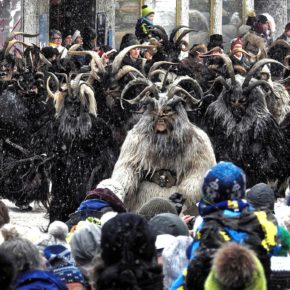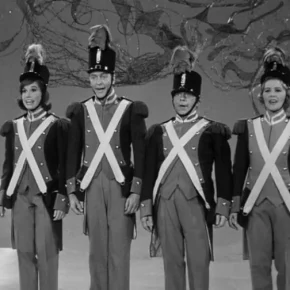For a long time, I’ve been galled at people who use religion as a tool of oppression, fear and political gain. Growing up in Utah, I saw a lot of this first-hand, and the BushCo Republicans and other theocons are constantly using their own twisted interpretations of Christ’s teachings to inspire fear and hatred, bringing the United States back many, many generations and harming the fabric of the nation. They are dangerous, misinformed and tunnel-visioned to the point where they don’t realize the harm they accomplish.
So with that, I give you a link to this wonderful post at Daily Kos. It’s a wonderful reflection on Christ and Christianity from a non-Christian, and seems most appropriate on the eve of Easter, the holiest of holy days in the Christian traditions.















Grey Kitten
17 April 2006 — 17:17
Good message there at Daily Kos.
Sadly, organized religion has a long history of being used as a tool of oppression, fear, and polical gain. These are some of its greatest strengths to people in power.
Controlling the masses is hard work. They have a tendency to behave like random particles, and just go off in whatever direction they happen to be headed. Physically, philosophically, morally – it’s all the same as basic physics.
Now you get someone who stands off to one side and barks loudly and continuously, and instead of particals, you have sheep. The go in unison as they are shepherded. Some might try to stray, but then you just need to pay attention, head them off, bark a little louder, and bring them back to the fold. Religious imagery is great for barking with.
Religion, as a tool in the hands of an intellectual, a thinker, is an excellent guide. All religions with which I have any familiarity contain stories and parables that can teach us morals and lessons about living in a society and dealing with the world around us. When studied, debated, and picked apart to glean wisdom from, this is great.
The most vocal religious people don’t do this.
Many religious people start out afraid. They don’t want to think, that’s hard work. They don’t want to debate the meaning, they want instead to be given the answers.
When you stand there naively begging to be told what to do, eventually someone will tell you. And most likely he will say “follow me.”
Christians celebrate being sheep, but how many of them truly follow Jesus as their shephard? How many have instead been tricked into following some other message, some opposite message, invoked in Jesus’ name but with none of the spirit of what He stood for?
The Bible is a collection of stories. It contains stories by different authors that contratict one another. Religious scholars dissect these contradictions to find meaning. Typical religious teachings quash questioning God’s wisdom, insisting on a blind acceptance and faith. “God works in mysterious ways.” This answer is from the ones who seek to use faith to control the masses.
Sometimes I miss being Christian. I gave it up not because I stopped believing that there could be such a thing as a God, but rather because I stopped believing there could be such a thing as a Christian.